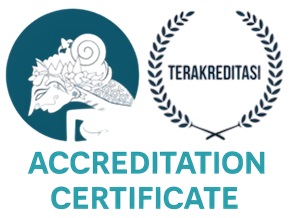Komunikasi Kelompok Dalam Meningkatkan Kekompakan Tim Futsal Valupi Dehasen Bengkulu
Abstract
This study aims to analyze the role of group communication in enhancing the cohesiveness of the Futsal Valupi Dehasen Bengkulu team. Established in 2023, this university-based futsal team has achieved outstanding performance in various local, regional, and national tournaments. Behind these accomplishments lies a set of internal dynamics, particularly the challenge of maintaining unity among team members with diverse backgrounds and personalities. In this context, group communication plays a crucial role in fostering synergy and effective teamwork, both through verbal and non-verbal means. This research employs a qualitative descriptive method using a case study approach. Data were collected through observations, in-depth interviews, and documentation involving coaches and players. The study is grounded in Aubrey Fisher’s task group communication theory, which outlines four key stages of group communication: orientation, conflict, emergence, and reinforcement. The findings reveal that in the orientation stage, a familial approach and informal communication are key to building trust and aligning team vision. The conflict stage naturally arises from differing perspectives but is constructively managed through open dialogue, routine evaluations, and strong leadership from the coach and team captain. During the emergence stage, players begin to demonstrate emotional maturity, identify shared values, and strengthen their sense of belonging within the team. In the reinforcement stage, communication becomes more open, supportive, and trust-based, which plays a significant role in maintaining teamwork and team spirit. Overall, this study highlights that effective and dynamic group communication is central to forming a solid, harmonious, and competitive futsal team. The results are expected to contribute both theoretically and practically to the development of team management strategies in sports, particularly in designing communication models that support overall team performance
Downloads
Copyright (c) 2025 Sony Pranata, Yanto Yanto, Maryaningsih Maryaningsih

This work is licensed under a Creative Commons Attribution-ShareAlike 4.0 International License.











